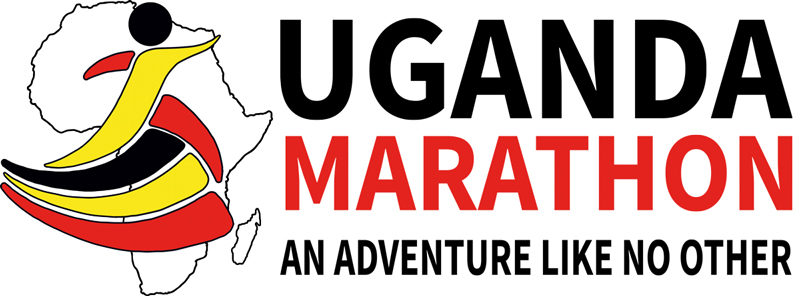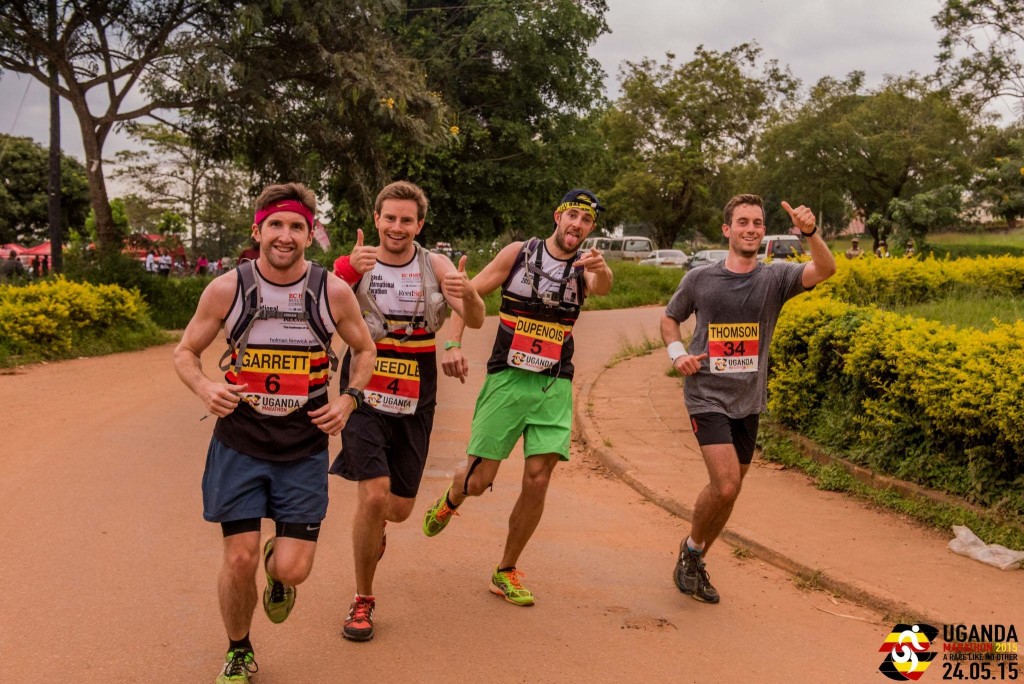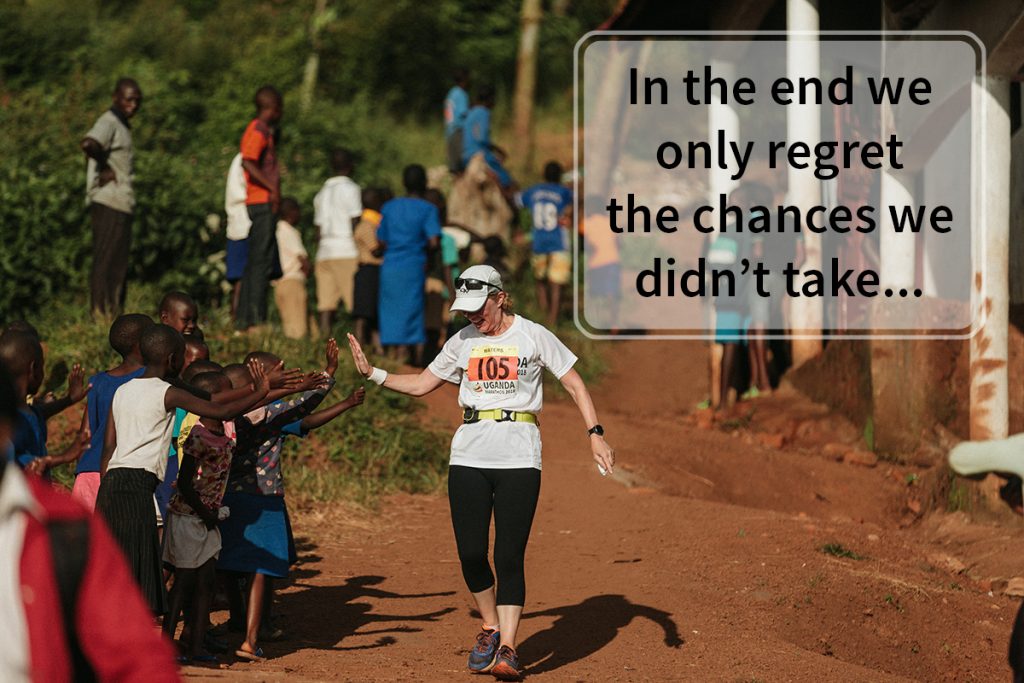Welcome to the Uganda Marathon Runners’ Blog! Our series of blogs dedicated to our participants preparing to take part in this year’s event. Over the coming weeks, we’ll share suggestions to help in your preparations for the 7-Day adventure, from training tips to fundraising and travel advice.
Written by a former participant, these blogs are all about supporting our group of 2019 runners – please feel free to get in touch if you have questions or topic suggestions – we’d love to hear from you!
There are just under 4 weeks to go until Race Day, so it’s time to start thinking about a key ingredient to any training plan: Tapering. This is essentially where, as your event approaches, in the final stretch of your training you run less and rest more!
Some runners feel quite uneasy about this, especially after months of training hard, as they don’t want to lose any well-earned fitness before Race Day. However, there are a lot of reasons to embrace tapering. Firstly, you won’t lose any significant fitness by decreasing your mileage at this point, and resting now will actually turn you into a stronger runner as your body is allowed time to heal. Furthermore, decreasing your mileage will reduce the chances of picking up an injury or getting ill (eg. catching a cold) with the event getting close now.
And perhaps the best news of all: an average performance improves by 3 percent from good tapering. That can equal 5-10 minutes off a marathon time and a minute off a 10K!
Like many things in running though, it’s not a ‘one size fits all’ and training plans will vary slightly on their advice. Crucially it’s all about listening to your body at this point. But to get you started with tapering, especially if you’re new to running, here are some of the basic questions covered…
When should I start tapering?
Depending on the race distance you’ve entered for June 1st, this will determine when you should start tapering. The aim is to start the day after your (final) longest training run.
Full Marathon: 4 or 3 weeks before the race
Half Marathon: 2 weeks before the race
10K: 1 week before the race
Should I reduce my weekly mileage leading up to the race?
In short: Yes! This is what tapering is all about.
Often, your longest run will top off the week where you ran the most miles in total, and then tapering starts. From then, it’s all about cutting your miles down progressively through your tapering period. Refer to your plan for specifics, but as a guide:
Full Marathon: in your first tapering week, cut it by 20% of what you did in your highest mileage week. Then cut it by 40% in the second week and then by 60% in the week leading up to the race (both relative to your highest mileage week).
Half Marathon: reduce your mileage by 30% over week 1, and 50% over week 2, both compared to your highest mileage week.
10K: cut your mileage by 50% in the week leading up to the race, compared to what you ran the week before.
For the most benefit, you want to reduce the miles you’re running each week by shortening your individual runs, rather than cutting down on the number of runs you’re doing.
Avoid hill training and speed training, but work on pacing
If possible, it’s best to avoid hill training and speed workouts now. If you’ve been able to do some over the past few weeks, it will certainly help in Uganda. But this type of training during tapering will hinder your body’s efforts to repair muscle damage, so they are likely to do more harm than good at this point.
Instead, use some of your runs during tapering to your advantage. Practice the pace that you think you’re likely to set in Uganda (or perhaps slightly slower), bearing in mind the harsher African conditions such as hills, heat etc. Work out what’s realistic for you and more importantly, what pace you’ll enjoy running at. Then you’ll be able to go into your run full of confidence, knowing what pace you’re capable of running.
Use your tapering to prepare your kit too…
Get a couple of full dress rehearsals in, prior to your big race in Uganda. Break those new shoes in, practice running with your camelback, test that running app, try those running gels to check they agree with your stomach. You don’t want anything unexpected to happen on race day! Tip the odds in your favour by preparing over these final weeks and testing out your kit, fuel – literally everything you can test.
Confession: I once wore my brand new running shoes for the first time at the Wimbledon Half at a 2016 UGM social run, and then three-quarters around the course, I discovered they were rubbing. Oops! Best to avoid that happening on the Equator… 🙂
Get plenty of sleep!
We all live busy lives, and often sleep gets neglected. But whilst you taper in these final weeks, try your best to get lots of sleep with a consistent sleep pattern. Prior to travelling to Uganda, this is especially important as you’ll going to have a busy (but incredible) week during the 7-day adventure.
Bring it all together…
For my first marathon in 2014, I didn’t really taper. But when I tapered in preparation for Uganda in 2015, it really made a difference. I felt fresh for Race Day and can’t recommend it enough! You’re going to be running the race of lifetime soon, so why not make sure you’re 100% ready for it? After all of your training, you’ve earned some downtime. Resting now will serve you better than intense training.
So put those feet up. Rest up. Make your final preparations and don’t take any chances now. It’s going to be a ‘race like no other’.




